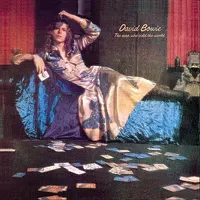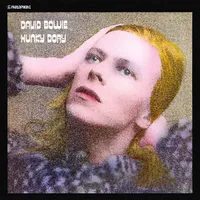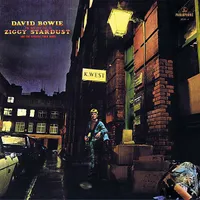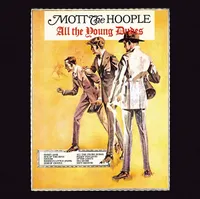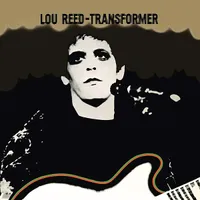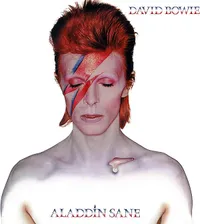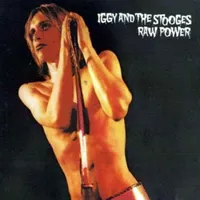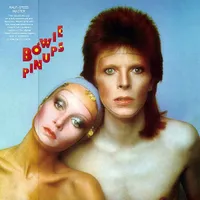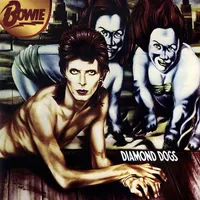Did David Bowie really have a hand in NINE classic albums in a three year period? Yes, he did.
In the period between 1971 and 1974, David Bowie worked on nine of rock's greatest albums
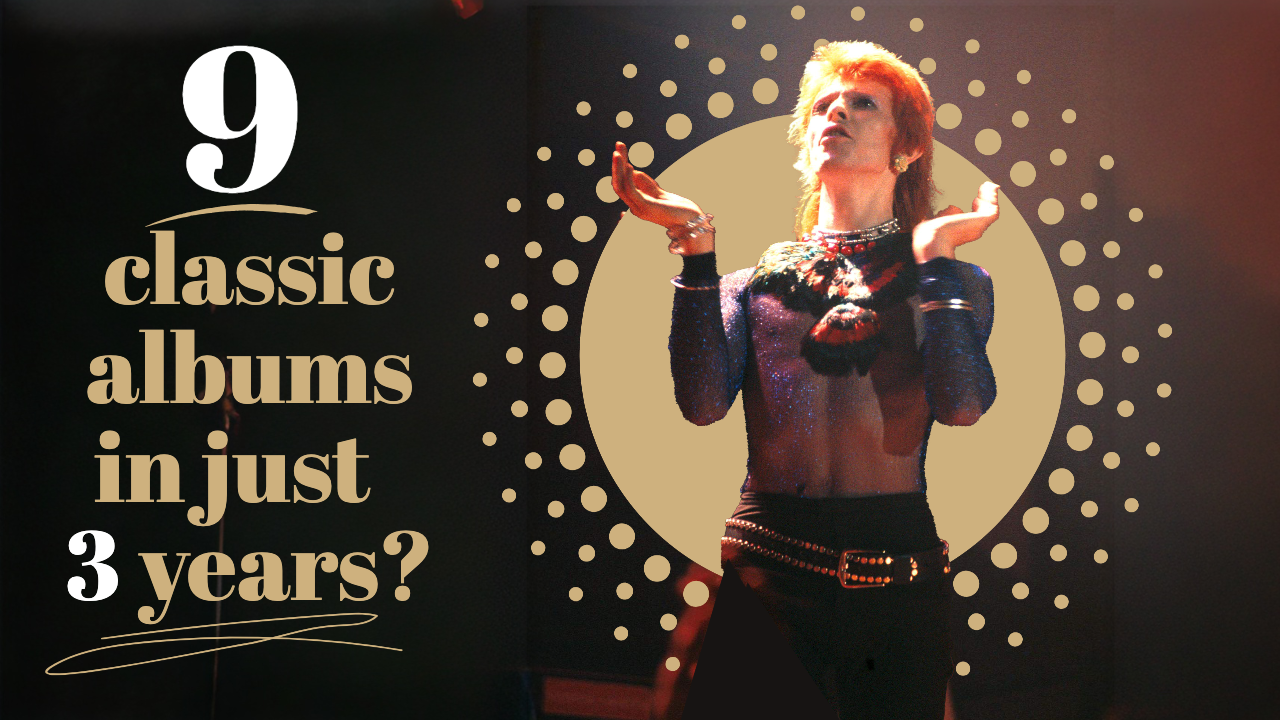
No-one saw it coming, except maybe Bowie himself – and bluesman Robert Johnson.
In 1970, David Bowie was struggling to break through. He had been a mime artist, a mod, and a pop singer with two novelty hit singles in The Laughing Gnome and Space Oddity.
He had made two albums, both called David Bowie, both commercial failures, with neither, despite their titles, really capturing the essence of the artist we know today.
By 1971, in a transformation that maybe only bluesman Robert Johnson could relate to, Bowie began a winning streak that saw him have a hand in nine classic albums in just three years.
They say that Robert Johnson was an average guitarist who sold his soul to the devil at the crossroads in order to become the influential blues player he became. Bowie didn’t sell his soul and his salvation came from Hull, not hell. Guitarist Mick Ronson and the band that became known as the Spiders From Mars, would reinvigorate Bowie, and transform him from a Dylanesque singer-songwriter into an electric rock star.
Bowie’s vision came to life. The inspiration they provided, the arrangements, and the momentum carried him through his first purple patch and saw him have a hand in some of the greatest, most notorious and influential albums of all time. All in a three year period.

David Bowie - The Man Who Sold The World (April 1971)
Bowie hooks up with guitarist Mick Ronson – Hull’s answer to Jeff Beck – and his buddy Mick ‘Woody’ Woodmansey on drums. Memories of free festivals and hippy-dippy tendencies are shredded within seconds of hearing The Width Of A Circle, the blazing eight-minute opener in which the narrator turns into a monster and, um, fellates God. In hell. Beat that, Black Sabbath. (Other highlights include the Sabbath-goes-pop Black Country Rock and the title track, a song that binds Nirvana and Lulu.)
David Bowie - Hunky Dory (December 1971)
Trevor Bolder joins to play the bass and Bowie’s purple patch starts here. From all-time pop rock classics like Changes and Oh! You Pretty Things (featuring Rick Wakeman on piano), to epics like Life On Mars, kick-ass rockers like Queen Bitch, and psychedelic-folk like Quicksand and The Bewlay Brothers, Hunky Dory is the Bowie fan’s favourite Bowie album (even if they do quickly skip over Fill Your Heart and Andy Warhol like everyone else).
David Bowie - The Rise & Fall Of Ziggy Stardust & The Spiders From Mars (June 1972)
Ziggy was conceived as a West End musical. Instead, it became one of rock’s greatest albums. Full of drama (Apocalypse! Aliens! Tigers on Vaseline!), sex (‘She said she had to squeeze it, but she – and then she…’), killer tunes, Ronson’s throaty guitar, and a ton of endlessly quotable lines (‘Wham-bam, thank you, ma’am!’ ‘When the kids had killed the man, I had to break up the band’ etc etc). Wonderful! Aw, gimme yer hands!
Mott The Hoople - All The Young Dudes (September 1972)
After the poorly received Brain Capers, bassist Overend Watts asked the pre-Ziggy Bowie if he needed a bass player. Aghast that such a great band as Mott should split, Bowie offered one of his unrecorded songs. All The Young Dudes went to No.3 in the charts and Bowie and Ronson went into the studio to complete the album with the band. It was Mott’s biggest album and the first time Ian Hunter and Mick Ronson worked together, Ronson coming up with Sea Diver’s swelling string part
Lou Reed - Transformer (November 1972)
The post-Velvet Underground Lou Reed had made one duff solo album before hooking up with mega-fan Bowie in London for the album that temporarily turned him into a glam sensation. Mick Ronson adds guitar, piano (on Perfect Day), bass and string arrangements, while Bowie came up with the idea for the sax part on Walk On The Wild Side. The rest of his time was apparently spent translating Ronno’s Hull accent for Lou.
David Bowie - Aladdin Sane (April 1973)
It’s traditional to view the follow-up to Ziggy as a disappointment, but in 2025 Aladdin Sane still sounds better than most other albums. As well as the hits (the joyous Jean Genie, the anthemic Drive-In Saturday), there are feverish rockers (Watch That Man, Panic In Detroit, a manic take on the Stones’ Let’s Spend The Night Together), an astonishing reworking of earlier single The Prettiest Star, and some crazy lyrics about Time flexing ‘like a whore’ and falling ‘wanking to the floor’. What’s not to like?
Iggy And The Stooges - Raw Power (June 1973)
One of the most ferocious albums of the 70s. At Bowie’s recommendation, Iggy was handled by MainMan Management. MainMan, upset at The Ig’s own primitive mix of Raw Power, insisted that Bowie be allowed to sprinkle some of his fairydust on it before release. Bowie didn’t exactly ‘do a Mutt Lange’: apparently he spent a day on it, remixing every track except Search & Destroy. The finished result still sounded evil. One of the most influential albums of all time.
David Bowie - Pin-Ups (October 1973)
A classic? Well, maybe not, but Pin-Ups is the album that every two-bit rock band says they’re paying tribute to as they knock out some half-arsed stop-gap, contract-filling covers album. Impressive when you’re young and haven’t heard the originals, the joys of Pin-Ups are rather more selective when you’ve been listening to rock for most of your life. Still, garage-band rockers like Rosalyn and Don't Bring Me Down introduced thousands to charms of The Pretty Things, while Sorrow (by The McCoys, via The Merseys) went to #3.
David Bowie - Diamond Dogs (May 1974)
With Ronson and the Spiders gone, Bowie plays lead guitar on Rebel Rebel and the hip-talking title track (‘The Hallowe’en Jack is a real cool cat/And he lives on top of Manhattan Chase/The elevator’s broke, so he slides down a rope/Onto the street below, oh Tarzie, go man go’). The show-stopping suite Sweet Thing/Candidate/Sweet Thing (Reprise) makes a theatrical bid for greatness, while the disco-funk of 1984 provides the bridge to Young Americans – his first real misstep in three years of essential rock albums.
Without Ronson, Bowie had struggled a little but proved himself. He needed other collaborators, and he looked for them in Philadelphia and then Berlin, where he would soon hit another purple patch – between 1975 and 1980 he had his hand in seven albums that would help define new wave and post-punk. But that's another story…
Sign up below to get the latest from Classic Rock, plus exclusive special offers, direct to your inbox!

Scott is the Content Director of Music at Future plc, responsible for the editorial strategy of online and print brands like Louder, Classic Rock, Metal Hammer, Prog, Guitarist, Guitar World, Guitar Player, Total Guitar etc. He was Editor in Chief of Classic Rock magazine for 10 years and Editor of Total Guitar for 4 years and has contributed to The Big Issue, Esquire and more. Scott wrote chapters for two of legendary sleeve designer Storm Thorgerson's books (For The Love Of Vinyl, 2009, and Gathering Storm, 2015). He regularly appears on Classic Rock’s podcast, The 20 Million Club, and was the writer/researcher on 2017’s Mick Ronson documentary Beside Bowie.
You must confirm your public display name before commenting
Please logout and then login again, you will then be prompted to enter your display name.
